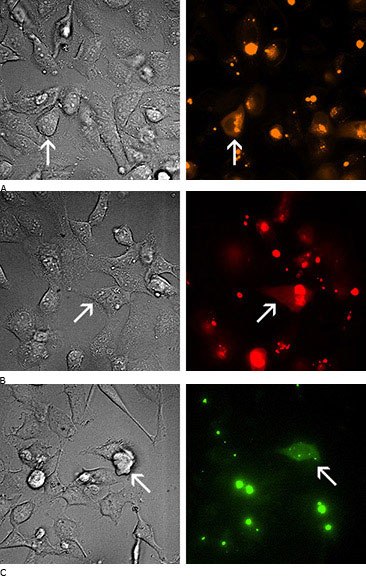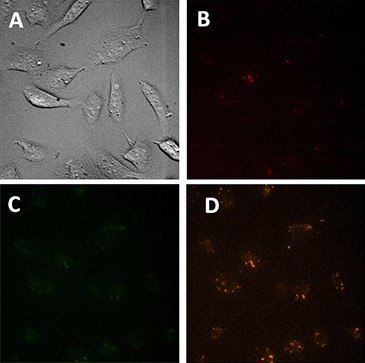siRNA Universal Neg. Controls
All ordering options are in the Available siRNA Universal Negative Controls table.
MISSION® siRNA Universal Negative Controls are an essential component of any gene silencing experiment. The negative controls have been designed to distinguish sequence-specific silencing from non-specific effects.
Product Benefits
- No homology to any known gene sequence
- Available with fluorescent labels, thereby allowing rapid assessment of transfection efficiency
- Tested in vitro in Human, Mouse & Rat cells
Product Features
- Options: 2 unique sequences available unmodified & modified
- Quantities: 0.2 (1 nmol), 5 x 0.2 (5 x 1 nmol) & 5 (10 nmol) OD
- Purification: Desalt
- Sequence Form: 21mer duplexes with dTdT overhangs
- Modifications: Cyanine 3, Cyanine 5 & 6-FAM™ available
- Quality Control: 100% mass spectrometry*
- Format: Supplied dry in tubes
*Depending on manufacturing site, PAGE may be used to assess siRNA duplexes.
Customization of the above features are available. For feasibility review of your specific needs, please send a request to sirnarequest@sial.com.
Available siRNA Universal Negative Controls
Validation Data
HeLa cells were seeded in 24-well plates 24 hours prior to transfection at a density of 40,000 cells per well. Cells were then transfected using the MISSION siRNA Transfection Reagent and 10 nM of the various Fluorescent Universal Negative Controls. Fluorescence was assessed 24 hours post-transfection, and images were captured at 40X magnification. Figure 1 shows examples of treatment cells with expected results. Figure 2 shows control cells with no Fluorescent Universal Negative Controls present.

Figure 1.Microscopic images of treatment cells. A) DIC (differential interference contrast) and fluorescence microscopy of SIC003 Fluorescent Universal Negative Control #1 w/Cyanine 3 (excitation: 550 nm & emission: 570 nm; RFP filter excitation: 555 nm ±25 & detection: 605 nm ±52) B) DIC and fluorescence microscopy of SIC005 Fluorescent Universal Negative Control #1 w/Cyanine 5 (excitation: 650 nm & emission: 670 nm; Cyanine 5 filter excitation: 320 nm ±60 & detection: 700 nm ±75) and C) DIC and Fluorescence microscopy of Fluorescent SIC007 Universal Negative Control #1 w/6-FAM (excitation: 495 nm & emission: 516 nm; GFP filter excitation: 490 nm ±20 & detection: 525 nm ±36). Arrows indicate a cell where fluorescence is evident.

Figure 2.Microscopic images of control cells (treated only with transfection reagent). A) DIC B) Fluorescent Cyanine 5 filter C) Fluorescent GFP filter and D) Fluorescent RFP filter. Some autofluorescence is visible. However, it is very dim compared to the Fluorescent Universal Negative Controls w/Cyanine 3, Cyanine 5 & 6-FAM.
If additional help is needed, please consult our technical services group at oligotechserv@sial.com.
MISSION is a trademark of Merck KGaA, Darmstadt, Germany, and/or its affiliates. Label License.
如要继续阅读,请登录或创建帐户。
暂无帐户?